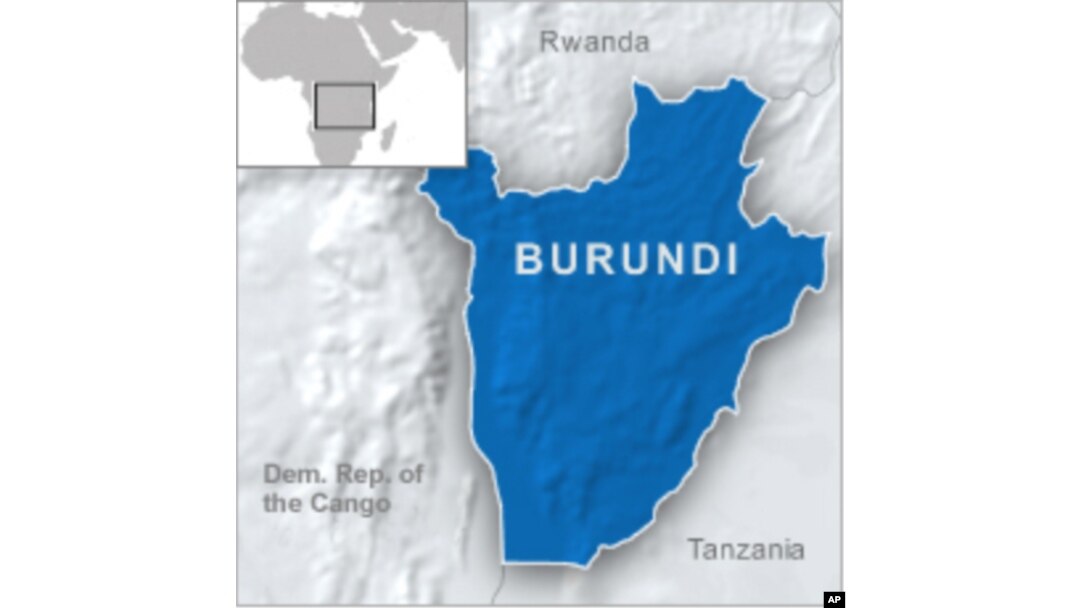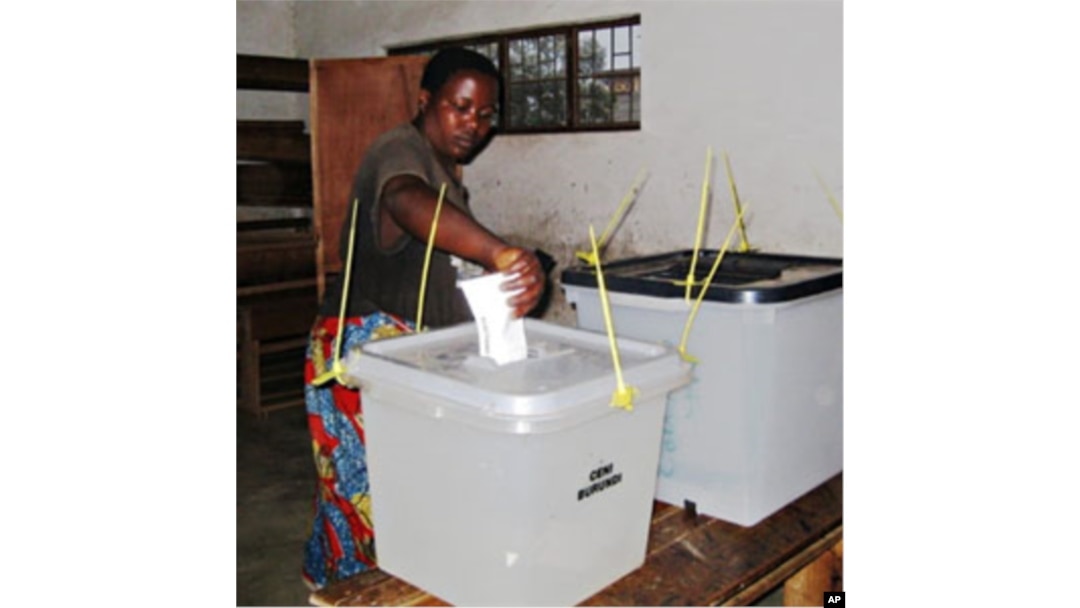
Human Rights Watch Warns of Shrinking Political Space in Burundi
After a flawed series of elections in Burundi, Human Rights Watch says the ruling party has used its victory to shut out opposition and restrict free expression.
From May until September, Burundi held a series of regional and national elections that international observers hoped would cap its transition to a full-fledged democracy. Emerging from a 16-year civil war in 2009, a relatively open climate for opposition parties and media, as well as the participation of former rebel group National Liberation Forces - FNL - provided encouraging signs.
But the ruling party's large victory in the May municipal polls triggered claims of fraud by the opposition and a general boycott of the process. A series of grenade attacks began in mid June and on June 28, incumbent President Pierre Nkurunziza ran unopposed in the presidential election. Opposition parties gradually re-entered the remaining legislative and communal elections, but the end result was a resounding victory for the ruling CNDD-FDD party.
According to Human Rights Watch researcher Neela Ghoshal, there was a hope that the Nkurunziza might use his mandate to reform the country's political space.
"Unfortunately that hasn't been the case. We have seen that there has been a narrowing of space, a closure to dissident voices," said Ghoshal. "This is concerning because it has really reached a point in which there are certain people in government who consider the political opposition as well as civil society and the media to be enemies."
Ghoshal is the author of the latest Human Rights Watch report Closing Doors? which examines the political developments in Burundi since the beginning of nationwide elections.
The report details serious rights violations both during and after the campaign, including the torture of opposition members from multiple parties and the arrest and continued detention of journalists such as Jean Claude Kavumbagu. Kavumbagu was arrested in July for an article which questioned the competency of the Burundian Security Forces.
The report warns that Burundi - which has recently emerged from a civil war - is still vulnerable to political instability.
Most troubling is the recent government takeover of main opposition party FNL. The group was, as recently as 2009, engaging in armed conflict with the government. Fears of arrest during the elections sent FNL leader Agathon Rwasa into hiding.

A Burundian voter casts her vote at a polling station in Burundi's capital, Bujumbura (File Photo - 23 Jul 2010)
In the absence of Rwasa, a minority group of FNL members held an extraordinary session replacing the party leadership. The move was deemed illegal under the Party's charter but was immediately recognized by the Burundian Ministry of Interior. According to the report, the new FNL is now essentially a satellite of the ruling party.
"This is something that we consider not only anti-democratic and illegal but also dangerous," added Ghoshal. "The government spent years negotiating with Rwasa, trying to bring him into the political process. Suddenly, with one stroke of the pen he is no longer in the political process at all."
But the report says violence can easily be avoided by enacting key reforms. Among other recommendations Human Rights Watch is urging the Burundian government to reverse the recognition of the new FNL leadership, release or bring charges against prisoners such as Kavumbagu and establish commissions to investigate the extrajudicial torture and killing that have plagued the country.

